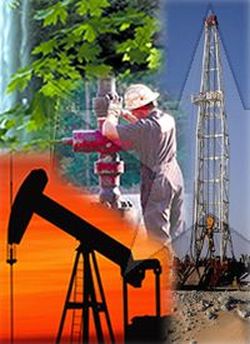Dunes Sagebrush Lizard located primarily in the Permian Basin, the heart of Texas’ oil and gas industry
Texas Insider Report: AUSTIN, Texas – Today, Texas Land Commissioner Dawn Buckingham, M.D. announced the General Land Office (GLO) has submitted comments to the U.S. Fish and Wildlife Service (USFWS) regarding the listing of the Dunes Sagebrush Lizard (DSL) as endangered under the Endangered Species Act (ESA). This classification could have a crippling impact on the oil and gas industry in the state and throughout the nation, as well as negatively affect the education of Texas’ schoolchildren
Texas Insider Report: AUSTIN, Texas – Today, Texas Land Commissioner Dawn Buckingham, M.D. announced the General Land Office (GLO) has submitted comments to the U.S. Fish and Wildlife Service (USFWS) regarding the listing of the Dunes Sagebrush Lizard (DSL) as endangered under the Endangered Species Act (ESA). This classification could have a crippling impact on the oil and gas industry in the state and throughout the nation, as well as negatively affect the education of Texas’ schoolchildren
 "As a steward of our precious, energy rich state land, and a manager of our state's School Fund, into which the GLO deposited over $2.1 billion in oil and natural gas revenues last fiscal year, the wellbeing of Texans and their families will always be my top priority,” said Commissioner Buckingham.
"As a steward of our precious, energy rich state land, and a manager of our state's School Fund, into which the GLO deposited over $2.1 billion in oil and natural gas revenues last fiscal year, the wellbeing of Texans and their families will always be my top priority,” said Commissioner Buckingham.“I will not jeopardize the education of our children or risk crippling Texas' oil and gas industry for an ESA listing based on a mishmash of inconsistent statements, disregarded facts and admitted unknowns. If implemented, I am prepared to take the Biden Administration to court to stop this haphazard, unsupported classification.”
Inconsistencies with listing the DSL as endangered include:
- USFWS has provided no evidence to illustrate a change to oil and gas development in the Permian Basin sufficient to justify reversing their 2012 finding that the DSL does not meet the statutory definition of an endangered or threatened species under the ESA.
- USFWS purposefully disregards Texas' voluntary conservation efforts to protect the DSL in its analysis. By its own statement, USFWS does not consider the impacts of conservation efforts unless they are compulsory, permanent, and all-encompassing.
- USFWS and the Biden Administration have ignored the population trends of the DSL which show that their numbers are increasing.
In the letter, Commissioner Buckingham expresses concerns that, "although the proposed habitat of the DSL is not well or clearly defined by USFWS, it appears to be located primarily in the Permian Basin of far West Texas, which is the beating heart of Texas’ – and the country’s – oil and gas industry and, therefore, one of the primary sources of revenue for education in Texas, by way of the School Fund and the Permanent University Fund (PUF)."
The letter also notes that "listing the DSL will surely bring with it a designation of critical habitat as well as rules strictly limiting, or even prohibiting, surface activities that are necessary for oil and gas exploration and production."
The letter goes on to state that, due to the foreseeable decrease in oil and gas revenues that support the School Fund and PUF if the USFWS regulation were to take effect, "the listing of the DSL as endangered under the Endangered Species Act will have a significant detrimental impact on education in Texas."
- To read the letter submitted by the GLO, click here.























